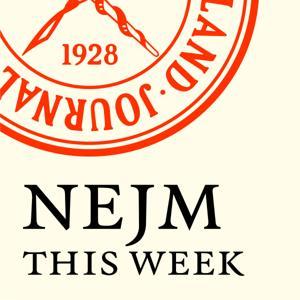I almost can't believe that we are wrapping up yet another year on the podcast this month, which has been going strong for 6 years now! And it has been another exciting year in the world of Clin Micro as well with improvements and new assays available for some of our bread and butter tests, but the year also brought about significant developments in the application of AI and digital imaging, use of NGS methods, and probably some cool AST stuff in there too among other things, with many of these advancements published in JCM. And so, as has become customary for the last 6 years, for this episode, we will be sharing some of our favorite papers or more intriguing manuscripts published in the Journal this year. And I have to say, this is probably one of the hardest episodes to prep for because picking just on paper to talk about is an incredible difficult task! But, we are up to the challenge and we'll share those with you over the next half hour or so, all the while wearing ridiculous holiday sweaters and/or holiday headgear, as is now tradition. So, if you are not watching, you may want to switch and find a video option for your viewing pleasure.
Watch this episode: https://youtu.be/taqcjqeQQBE
Paper Links: Interlaboratory assays from the fungal PCR Initiative and the Modimucor Study Group to improve qPCR detection of Mucorales DNA in serum: one more step toward standardization | Journal of Clinical Microbiology https://journals.asm.org/doi/10.1128/jcm.01525-24
Detection of protozoan and helminth parasites in concentrated wet mounts of stool using a deep convolutional neural network | Journal of Clinical Microbiology https://journals.asm.org/doi/10.1128/jcm.01062-25
Prediction of antimicrobial susceptibility of pneumococci based on whole-genome sequencing data: a direct comparison of two genomic tools to conventional antimicrobial susceptibility testing | Journal of Clinical Microbiology https://journals.asm.org/doi/10.1128/jcm.01079-24 a. Bonus: Rapid detection of gram-negative antimicrobial resistance determinants directly from positive blood culture broths using a multiplex PCR system | Journal of Clinical Microbiology https://journals.asm.org/doi/10.1128/jcm.00384-25
A novel single-tier serologic test to diagnose all stages of Lyme disease | Journal of Clinical Microbiology https://journals.asm.org/doi/10.1128/jcm.00483-25
This episode of Editors in Conversation is brought to you by the Journal of Clinical Microbiology and hosted by JCM Editor in Chief, Romney Humphries, Ph.D., D(ABMM) and Elitza (Elli) Theel, Ph.D., D(ABMM).
Editors in conversation is supported by the American Society for Microbiology, which publishes JCM. Become an ASM member to receive up to 50% off publishing fees when you publish in JCM or any of the ASM journals.
Sign up at https://asm.org/joinasm.
Visit https://journals.asm.org/journal/jcm to read articles and/or submit a manuscript.
Get the audio only podcast at https://asm.org/eic.











































